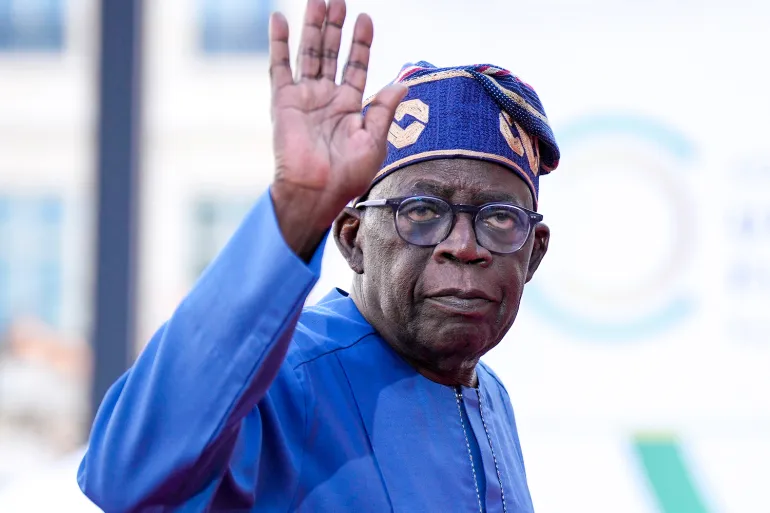President Tinubu Blames Global Economic Shocks for Excruciating Reforms in Nigeria

President Bola Tinubu has attributed the stringent economic reforms in Nigeria to global economic shockwaves.
Speaking at the opening ceremony of the 2024 African Caucus Meeting on Friday, Tinubu emphasized that the Federal Government is implementing bold economic policies to navigate the downturns caused by these global shocks.
President Tinubu, represented by Vice President Kashim Shettima, highlighted the necessity of global cooperation among African countries to address shared economic challenges and harness opportunities.
He stressed that despite Africa’s numerous challenges in economic, humanitarian, and social spheres, the continent must leverage its natural resources and human capital for growth, innovation, and collaboration.
The theme of this year’s meeting, “Facilitating Intra-African Trade: Catalyst for Sustainable Economic Growth in Africa,” underscores the collective commitment of member countries to advance the continent’s economic agenda.
In his keynote address titled, “A Shared Vision for Africa’s Growth,” Tinubu outlined his administration’s efforts to tackle global economic challenges and called for improved quality of life through democracy, good governance, and strong economic institutions.
“As a government, we have initiated bold economic reforms aimed at steering our economy away from the downturns caused by multiple shocks in the global economy,” President Tinubu said.
He also emphasized the importance of enhancing international tax cooperation to combat illicit financial flows and ensure multinationals contribute fairly to African economies.
“We need enhanced international tax cooperation to combat illicit financial flows and ensure that multinationals contribute fairly to our economies. We must also foster global economic cooperation to tackle shared challenges and leverage opportunities.
However, we must also acknowledge the need to take responsibility for our own development by undertaking the difficult structural and fiscal reforms required to boost long-term growth and enable reinvestment into our economies through infrastructure and effective social spending,” Tinubu stated.
In his welcome address, Chairperson of the Caucus and Nigeria’s Minister of Finance and Coordinating Minister of the Economy, Wale Edun, underscored the importance of decisions on currency convertibility, cross-border transactions, payment systems, and financial policy in determining the success of the African Continental Free Trade Area (AfCFTA).
Central Bank of Nigeria (CBN) Governor, Yemi Cardoso, noted that recent CBN reforms have led to reduced volatility in the foreign exchange market and increased inflows.
“Interbank market activities have deepened while rates have begun to converge around the standing facilities band. While challenges remain, the direction of travel is clearly positive. The challenges in the operating environment present significant hurdles. It is crucial that monetary and fiscal policies provide robust responses to mitigate the risks of rising inflation and the lingering effects,” Cardoso added.
Speaking virtually, Director General of the World Trade Organization (WTO), Dr. Ngozi Okonjo-Iweala, provided a comprehensive analysis of Africa’s economic situation and potential, emphasizing the need for greater regional integration.
“According to UN data for 2021, only 13 per cent of Africa’s goods trade was internal, compared to 21 per cent for Southeast Asia, 39 per cent for the U.S, Mexico and Canada, and 60 per cent for Europe,” Okonjo-Iweala noted.
Deputy Secretary-General of the United Nations, Amina Mohammed, stressed the importance of trade facilitation, a Pan-African payment and settlement system, and increased access to energy and connectivity.
She highlighted the challenges of public investment, noting that “last year, an extraordinary 48 per cent of government revenue in sub-Saharan Africa alone went to meeting debt payments.”
Prime Minister of Rwanda, Dr. Edouard Ngirente, emphasized the transformative potential of the AfCFTA, stating, “We stand at a crucial moment in Africa’s economic history.
With coordinated efforts and unwavering determination, we can unlock the vast potential of intra-African trade and secure a prosperous future for our continent.”








Comments
This post currently has no comments.